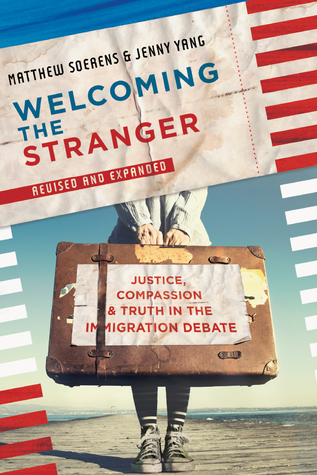I have been reading “Welcome The Stranger - Justice, Compassion & Truth in the Immigration Debate” and this passage stood out to me:
“Elena is a typical example of the millions of undocumented people in the United States who yearn to be on the path to citizenship but a this point are not. She came to the United States for the first time in 1990. Like many others, she came because there were insufficient work opportunities in her home country...
Elena thought about trying to obtain a visa, but with little money she knew that she would be denied a tourist visa, as she would be suspected (rightly) of being a potential overstayer. She would have liked to have immigrated legally as a Lawful Permanent Resident, but there was no accessible legal options for her to immigrate. So, instead, she paid about $600 to a coyote, trekked three days across the desert without food and drink, and eventually arrived to the welcome of her relatives in the suburbs of Chicago. With their help, she secured a false document to work and began flipping burgers at a fast-food restaurant within a month of arrival. She has since married and had two children - US citizens by birth - but she still does not have a green card.
Within the four general processes by which a person can obtain a green card under current immigration law, Elena has no options. Those four options are employment, family, the diversity lottery, or a fear of persecution in the home country....
An understanding of the actual waits and costs implied when we suggest that immigrants wait their turn and immigrate the legal way is helpful. It is equally important to acknowledge, though, that many (probably most) of the people who immigrate illegally to the United States did not even have the option to get in line, because they have no qualifying family member who is a US citizen or Lawful Permanent Resident. Elena is a good example. She chose to come to Illinois because she had family living there - a US-citizen uncle and Lawful Permanent Resident cousins - but they did not have any right to petition for their niece or cousin, respectively. So Elena had no one to apply on her behalf for a family-based visa, and instead she came, as may others have, by crossing the border illegally.
Elena’s son, who was born in the United States and is thus a US citizen, turned twenty-one a few years ago, so he is technically eligible to petition for his mother. Under current law, though, this would not really benefit Elena, because she would have to return to Mexico to apply for the visa-no adjustment of status within the United States would be possible in her case, at least under current law-and the moment she crosses the border, leaving the United States, she would trigger a ten-year bar to legal reentry because of a tough law passed by Congress in 1996. In her circumstance, there is no waiver or exception available, so unless he wants to be separated from her children for ten years, she does not have a particularly good option. ”
The closer you stare at the Federal Laws that govern our immigration policy the more contradictory and complicated it becomes.

